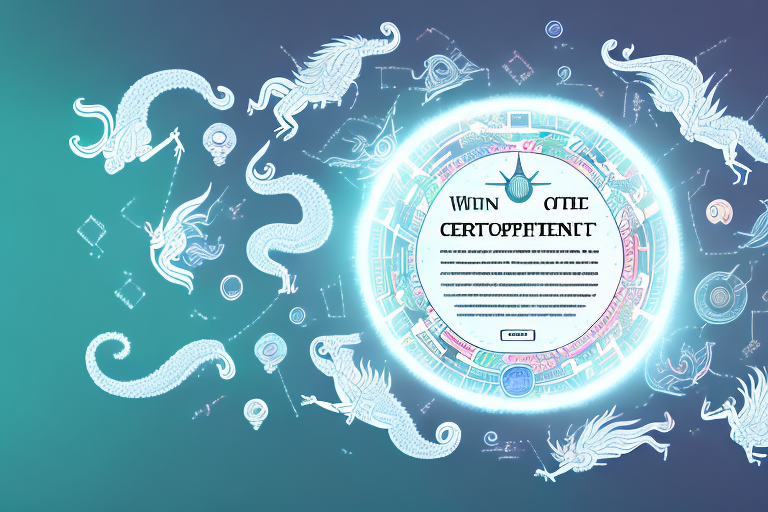In today’s digital age, technology has revolutionized many aspects of our lives, including the way we handle legal matters. One area that has seen significant change is the creation of wills. With the advent of online wills, there are several misconceptions surrounding their use and effectiveness. In this article, we aim to debunk these common misconceptions and shed light on the truth behind online wills.
Understanding the Concept of Online Wills
Before we dive into debunking the misconceptions, let’s first clarify what exactly wills online Australia entails. An online will is a legal document that allows individuals to create and manage their last will and testament using an online platform. It provides a convenient and accessible way for people to ensure their final wishes are recorded and executed according to their desires.
Creating an online will involves a step-by-step process that guides individuals through the various aspects of estate planning. From specifying beneficiaries and dividing assets to appointing guardians for minor children, an online will covers all the essential elements needed to ensure a smooth transition of one’s estate after their passing.
What is an Online Will?
An online will, also known as a digital will, is a document created and stored electronically. It typically includes detailed instructions on how the individual wishes to distribute their assets, appoint guardians for minor children, and specify any other wishes they may have regarding their estate.

With the advancement of technology, online wills have become increasingly popular due to their convenience and accessibility. Gone are the days of having to schedule appointments with lawyers and spend hours discussing and drafting a will. Now, individuals can create their wills from the comfort of their own homes, at their own pace, and at a fraction of the cost. Click here for the future of estate planning.
Online will platforms often provide user-friendly interfaces that simplify the process for individuals who may not have any legal background. They offer guidance and prompts to ensure that all necessary information is included, making it easier for individuals to create a comprehensive and legally binding will.
The Legal Validity of Online Wills
Contrary to popular belief, online wills are indeed legally binding documents in many jurisdictions. While specific regulations may vary from one jurisdiction to another, modern laws have adapted to accommodate the digital age. In fact, numerous court cases have upheld the validity of online wills, dispelling any doubts regarding their legal standing.
It is important to note that the legal validity of an online will depends on various factors, such as the jurisdiction in which it is created and the compliance with specific requirements. To ensure the legality and enforceability of an online will, it is advisable to consult with an attorney who specializes in estate planning and is familiar with the laws of the relevant jurisdiction.
Online will platforms often prioritize the legality of the documents created on their platforms. They employ encryption and security measures to protect the integrity and privacy of the information provided by users. Additionally, they may require users to go through verification processes to ensure the authenticity of the will and the identity of the individual creating it.
As technology continues to advance, the acceptance and recognition of online wills as legally binding documents are expected to increase. However, it is always wise to stay informed about the specific laws and regulations of one’s jurisdiction to ensure compliance and peace of mind.
Misconception 1: Online Wills are not Legally Binding
One of the most prevalent misconceptions surrounding online wills is that they are not legally binding. However, this is simply not true. Online wills are, in fact, recognized as legitimate legal documents when created and executed correctly.
The Truth about the Legal Status of Online Wills
Many jurisdictions have enacted specific legislation to recognize and regulate the use of online wills. These laws ensure that online wills meet the same legal requirements as traditional paper wills. As long as the online will meets the necessary criteria, it holds the same legal weight as a traditional will.
For example, in the United States, the Uniform Electronic Transactions Act (UETA) and the Electronic Signatures in Global and National Commerce Act (ESIGN) provide a legal framework for the use of electronic documents, including online wills. These acts establish that electronic signatures and records are valid and enforceable, ensuring that online wills are legally binding.
Similarly, in the United Kingdom, the Electronic Communications Act 2000 and the Wills Act 1837 have been amended to accommodate the use of electronic wills. These legislative changes recognize the validity of online wills and ensure that they are legally binding.
Case Studies Proving the Validity of Online Wills
Several high-profile court cases have demonstrated the legal validity of online wills. In these cases, online wills have been successfully executed, and the wishes of the deceased have been upheld by the courts. These examples provide clear evidence that online wills can indeed be legally binding.
One such case involved a wealthy businessman who created his will using an online platform. The will clearly outlined his wishes regarding the distribution of his assets, including his vast estate and various business holdings. After his passing, his family contested the validity of the online will, arguing that it was not legally binding. However, the court ruled in favor of the online will, recognizing it as a legally binding document that accurately reflected the deceased’s intentions.
In another case, a renowned artist created her will online, specifying how she wanted her artistic works to be preserved and exhibited after her death. Despite initial skepticism from her family, the court upheld the online will, acknowledging its validity and ensuring that the artist’s wishes were honored.
These real-life examples serve as powerful proof that online wills can be legally binding. They demonstrate that as long as the necessary legal requirements are met, online wills hold the same weight as traditional paper wills.

Misconception 2: Online Wills are not Secure
Another common misconception is that online wills lack security measures and are prone to hacking or unauthorized access. However, this is a misinterpretation of the reality.
When it comes to online wills, ensuring data security is of utmost importance. Reputable online will platforms understand this and employ robust security measures to protect sensitive information.
How Online Wills Ensure Data Security
Reputable online will platforms go to great lengths to ensure the security of your personal information. They use state-of-the-art encryption technology to encrypt your data, making it extremely difficult for hackers to decipher. This encryption technology acts as a virtual lock, protecting your will from unauthorized access.
In addition to encryption, secure servers are utilized to store your online will. These servers are located in highly secure data centers, equipped with physical security measures such as surveillance cameras, access control systems, and fire suppression systems. This physical security ensures that your will is protected from any potential threats.
Furthermore, strict access controls are implemented by online will platforms. Only authorized personnel, such as yourself and designated individuals, have access to your will. This ensures that your will remains confidential and prevents any unauthorized modifications or access.
Overall, the security measures employed by reputable online will platforms are designed to provide the same level of security as traditional paper-based wills, if not higher.
Measures to Protect Your Online Will
While online will platforms take significant steps to ensure data security, individuals can also take extra measures to protect their online wills.
One such measure is using strong passwords. It is crucial to create a unique and complex password for your online will platform account. This will make it significantly more difficult for hackers to gain access to your account and your will.
Enabling two-factor authentication is another effective measure to enhance the security of your online will. This adds an extra layer of protection by requiring a second form of verification, such as a unique code sent to your mobile device, in addition to your password.
Regularly updating and backing up your online will is also essential. By keeping your will up to date, you ensure that any changes or amendments are reflected accurately. Additionally, backing up your will to a secure location, such as an external hard drive or cloud storage, provides an extra layer of protection against data loss or corruption.
By implementing these proactive measures, individuals can further ensure the security of their online wills. It is important to remember that online will platforms are committed to safeguarding your personal information and have taken significant steps to provide a secure environment for your will.

Misconception 3: Online Wills are not Comprehensive
There is a misconception that online wills lack the comprehensive nature of traditional wills. This misconception stems from a misunderstanding of how online wills are structured and what they encompass.
The Comprehensive Nature of Online Wills
Online wills can be just as comprehensive as traditional wills, if not more so. Online platforms often provide user-friendly interfaces that guide individuals through the entire will creation process, ensuring all necessary aspects are covered. They prompt users to include detailed information for asset distribution, guardianship, and any other specific requests the individual may have.
Comparing Online Wills with Traditional Wills
When comparing the comprehensiveness of online wills to traditional wills, there is little difference. Both types of wills allow individuals to express their final wishes and dictate how their estate should be managed after their passing. The difference lies mainly in the method of creation, with online wills offering added convenience and accessibility.
Misconception 4: Online Wills are not Suitable for Complex Estates
Some individuals believe that online wills are only suitable for simple estates and do not cater to more complex situations. However, online will platforms have evolved to handle a wide range of estate planning needs, including complex estates.
How Online Wills Handle Complex Estates
Reputable online will platforms often provide advanced features and customizable options to address the complexities of certain estates. These platforms allow individuals to include specific instructions, appoint multiple executors, establish trusts, and navigate the intricacies of tax planning. Expert guidance is also available on these platforms to assist individuals in creating online wills tailored to their unique situations.
Expert Opinions on Online Wills and Complex Estates
Legal experts have recognized the efficacy of online wills even in complex estate planning scenarios. Many professionals now recommend online will platforms as a suitable solution for individuals with intricate estates. These platforms offer the necessary tools and support to ensure that all legal requirements are met and that the individual’s final wishes are carried out effectively.
In Conclusion
It is crucial to dispel the misconceptions surrounding online wills. These misconceptions often stem from a lack of understanding about the evolving legal landscape and the convenience and security provided by reputable online will platforms. When created and executed correctly, online wills are legally binding, secure, and comprehensive documents that cater to a wide range of estate planning needs. By embracing the digital age, individuals can confidently create, manage, and store their wills online, ensuring their final wishes are fulfilled.





